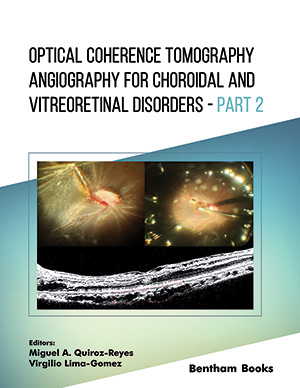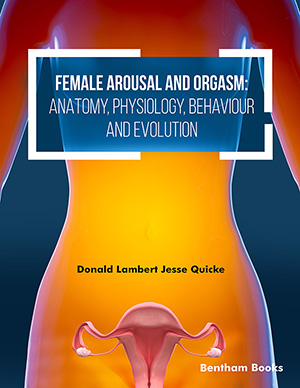Abstract
Background: Irritable bowel syndrome (IBS) is a prolonged bowel illness that is generally stress-related and is characterized by a variety of gastrointestinal problems, the most prominent of which is chronic visceral abdominal discomfort. As a result, IBS typically impacts sufferers' standard of living, and it is typically associated with depression and anxiety symptoms. IBS medication is based mostly on symptom alleviation. However, no effective medicines have been discovered too far. As a result, it is essential to discover novel anti-IBS medications.
Objective: The purpose of this brief review is to describe the existing research on nutraceutical supplements in irritable bowel syndrome management, including probiotics, prebiotics, symbiotics, herbal products, and dietary fibers.
Methods: This review covered the relevant papers from the previous twenty years that were available in different journals such as Science Direct, Elsevier, NCBI, and Web of Science that were related to the role and function of nutraceuticals in Irritable Bowel Syndrome.
Results: Nutraceutical substances have a variety of modes of action, including restoring the healthy microbiome, improving the function of the gastrointestinal barrier, immunomodulatory, antiinflammatory, and antinociceptive properties. According to the literature, these substances not only can improve irritable bowel syndrome symptomatology but also have an excellent long-term safety profile.
Conclusion: Irritable bowel syndrome is a prolonged bowel illness with a lot of gastrointestinal problems. The nutraceuticals treatment works as an anti-IBS intervention and enhances patient compliance with minimum side effects since patients take it better than pharmaceutical treatments.
Keywords: Nutraceuticals, polyphenols, irritable bowel syndrome, probiotics, natural fibres, antinociceptive properties.
[http://dx.doi.org/10.1111/j.1365-2982.2010.01502.x] [PMID: 20403099]
[http://dx.doi.org/10.4321/S1130-01082009000800006] [PMID: 19785495]
[http://dx.doi.org/10.1136/gut.2003.021857] [PMID: 15082584]
[http://dx.doi.org/10.1111/j.1365-2036.2008.03616.x] [PMID: 18194494]
[http://dx.doi.org/10.1111/j.1365-2036.2007.03362.x] [PMID: 17635382]
[http://dx.doi.org/10.1016/j.pop.2017.07.009] [PMID: 29132527]
[http://dx.doi.org/10.1038/nbt0898-728] [PMID: 9702769]
[http://dx.doi.org/10.1007/s13197-011-0269-4] [PMID: 23572839]
[http://dx.doi.org/10.1016/j.cellimm.2013.03.008] [PMID: 23648818]
[http://dx.doi.org/10.1073/pnas.1323599111] [PMID: 24799697]
[http://dx.doi.org/10.1016/S0140-6736(98)02146-1] [PMID: 9777836]
[http://dx.doi.org/10.1136/gut.2005.084194] [PMID: 16507583]
[http://dx.doi.org/10.1136/gut.2005.070987] [PMID: 16361309]
[http://dx.doi.org/10.1136/gut.2005.066100] [PMID: 16105890]
[http://dx.doi.org/10.1093/jn/137.8.1901] [PMID: 17634262]
[PMID: 8759703]
[http://dx.doi.org/10.1038/ajg.2010.159] [PMID: 20407431]
[http://dx.doi.org/10.1038/ajg.2010.438] [PMID: 21102570]
[http://dx.doi.org/10.1016/j.pharmthera.2014.12.006] [PMID: 25561343]
[http://dx.doi.org/10.1017/S0007114510003363] [PMID: 20920376]
[http://dx.doi.org/10.1017/S000711450779894X] [PMID: 17697398]
[http://dx.doi.org/10.1111/j.1365-2036.2008.03911.x] [PMID: 19053980]
[PMID: 25120896]
[PMID: 25584177]
[http://dx.doi.org/10.1111/j.1443-9573.2004.00176.x] [PMID: 15612887]
[http://dx.doi.org/10.1038/ajg.2013.63] [PMID: 23545709]
[http://dx.doi.org/10.1111/j.1745-7599.2012.00758.x] [PMID: 22845031]
[http://dx.doi.org/10.3892/ijmm.2017.3072] [PMID: 28731144]
[http://dx.doi.org/10.3748/wjg.v18.i37.5151] [PMID: 23066308]
[http://dx.doi.org/10.1016/S0140-6736(94)91055-3] [PMID: 7912305]
[http://dx.doi.org/10.1136/bmj.b3154] [PMID: 19713235]
[http://dx.doi.org/10.1053/j.gastro.2010.01.053] [PMID: 20152836]
[http://dx.doi.org/10.1097/01.mcg.0000436440.05887.02] [PMID: 24172177]
[http://dx.doi.org/10.3390/nu5041417] [PMID: 23609775]
[http://dx.doi.org/10.1136/bmj.297.6657.1175] [PMID: 2849492]
[http://dx.doi.org/10.1111/j.1365-2036.1993.tb00074.x]
[http://dx.doi.org/10.5056/jnm18077] [PMID: 30153721]
[http://dx.doi.org/10.1136/gutjnl-2011-301856] [PMID: 22767422]
[http://dx.doi.org/10.1016/j.cyto.2017.05.005] [PMID: 28506572]
[http://dx.doi.org/10.3390/molecules18054942] [PMID: 23624648]
[http://dx.doi.org/10.1111/j.1742-1241.2006.00980.x] [PMID: 16749917]
[http://dx.doi.org/10.1016/S0378-8741(96)01476-6] [PMID: 9121170]
[http://dx.doi.org/10.1038/ncpneph0283] [PMID: 17003837]
[http://dx.doi.org/10.1111/j.1365-2036.2004.01902.x] [PMID: 15043514]
[http://dx.doi.org/10.3748/wjg.v12.i13.2034] [PMID: 16610053]
[http://dx.doi.org/10.3748/wjg.v20.i48.18330] [PMID: 25561799]
[http://dx.doi.org/10.1016/j.jep.2009.05.037] [PMID: 19505552]
[http://dx.doi.org/10.4103/0972-0707.97949] [PMID: 22876011]
[http://dx.doi.org/10.1111/nmo.12334] [PMID: 24708203]
[http://dx.doi.org/10.1111/j.1365-2036.1988.tb00677.x] [PMID: 2856502]
[http://dx.doi.org/10.1016/0016-5085(91)90459-X] [PMID: 1646142]
[http://dx.doi.org/10.1016/S0304-3940(01)02527-7] [PMID: 11897159]
[http://dx.doi.org/10.1111/j.1365-2710.1977.tb00087.x]
[PMID: 20030464]
[PMID: 9889172]
[PMID: 21389791]
[http://dx.doi.org/10.1016/j.dld.2007.02.006] [PMID: 17420159]
[http://dx.doi.org/10.1007/BF02936952] [PMID: 9430014]
[http://dx.doi.org/10.1067/mpd.2001.109606] [PMID: 11148527]
[http://dx.doi.org/10.1136/bmj.a2313] [PMID: 19008265]
[http://dx.doi.org/10.1016/S0378-8741(97)00137-2] [PMID: 9582001]
[http://dx.doi.org/10.1016/j.ejphar.2017.03.003] [PMID: 28322843]
[http://dx.doi.org/10.1016/j.molimm.2004.04.013] [PMID: 15220002]
[http://dx.doi.org/10.1073/pnas.1217431110] [PMID: 23596210]
[http://dx.doi.org/10.2174/092986710790149738] [PMID: 20214562]
[http://dx.doi.org/10.1016/j.cbi.2008.05.003] [PMID: 18547552]
[http://dx.doi.org/10.1016/j.biocel.2008.06.010] [PMID: 18662800]
[http://dx.doi.org/10.1016/j.phrs.2016.07.004] [PMID: 27392742]
[PMID: 19594223]
[http://dx.doi.org/10.1007/s11010-008-9949-4] [PMID: 19002562]
[http://dx.doi.org/10.1007/s10620-005-3032-8] [PMID: 16240238]
[http://dx.doi.org/10.1007/s11011-014-9554-z] [PMID: 24807589]
[http://dx.doi.org/10.1111/j.1582-4934.2009.00897.x] [PMID: 19754673]
[http://dx.doi.org/10.1002/1099-1573(200102)15:1<58:AID-PTR805>3.0.CO;2-R] [PMID: 11180525]
[http://dx.doi.org/10.1017/S0007114510001571] [PMID: 20591206]
[http://dx.doi.org/10.1248/bpb.28.902] [PMID: 15863902]
[http://dx.doi.org/10.1111/bph.13632] [PMID: 27696378]
[http://dx.doi.org/10.1186/s12906-015-0595-6] [PMID: 25886126]
[http://dx.doi.org/10.1007/s13659-018-0190-x] [PMID: 30374904]
[http://dx.doi.org/10.1089/act.2005.11.17]
[http://dx.doi.org/10.5056/jnm17035] [PMID: 29879761]
[http://dx.doi.org/10.3389/fphar.2018.00299] [PMID: 29713277]
[http://dx.doi.org/10.5114/pg.2013.39917] [PMID: 24868283]
[http://dx.doi.org/10.3390/ijms18051051] [PMID: 28498331]
[http://dx.doi.org/10.1136/gut.2009.181834] [PMID: 19951903]
[http://dx.doi.org/10.3389/fnut.2021.746703] [PMID: 34977110]
[http://dx.doi.org/10.1111/jgh.15852] [PMID: 35396764]
[http://dx.doi.org/10.1080/10408398.2018.1546671] [PMID: 30596263]
[http://dx.doi.org/10.1016/S2468-1253(16)30023-1] [PMID: 28404070]




























